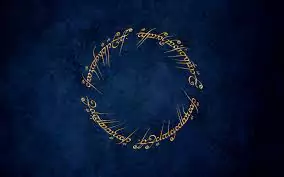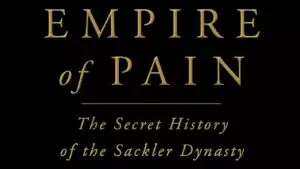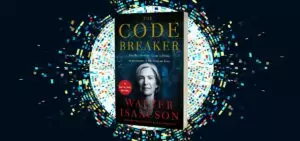 “The Lord of the Rings” is a book trilogy that is in many senses precious to me. I tried reading the trilogy several times, but every time I could not force myself to read through at least one book out of the three—the scales of action taking place in these famous novels by J.R.R. Tolkien seemed to be overwhelming. I could not remember all the names, locations, and historical events described in this trilogy, and thus I was not able to catch neither the storyline, nor empathize with the heroes. However, being already in my 20s, I took up the trilogy once again, giving it one final try—mostly because of the ado about the screen version of “The Hobbit”—Tolkien’s prequel to the trilogy is just as famous with readers. When I read it at this point in time, I realized what a rich cultural artifact I had been missing out on all these years.
“The Lord of the Rings” is a book trilogy that is in many senses precious to me. I tried reading the trilogy several times, but every time I could not force myself to read through at least one book out of the three—the scales of action taking place in these famous novels by J.R.R. Tolkien seemed to be overwhelming. I could not remember all the names, locations, and historical events described in this trilogy, and thus I was not able to catch neither the storyline, nor empathize with the heroes. However, being already in my 20s, I took up the trilogy once again, giving it one final try—mostly because of the ado about the screen version of “The Hobbit”—Tolkien’s prequel to the trilogy is just as famous with readers. When I read it at this point in time, I realized what a rich cultural artifact I had been missing out on all these years.

✅ AI Essay Writer ✅ AI Detector ✅ Plagchecker ✅ Paraphraser
✅ Summarizer ✅ Citation Generator
“The Lord of the Rings” is not an easy set of books to read. The language Tolkien uses (and he was a British professor of linguistics and philology), the aforementioned epic scales of storyline, the incredibly diverse cultural background behind the novel—its characters, plot, described events—this and many other factors make reading the trilogy rather an intellectual than entertaining occupation. While working on the book, Tolkien invented at least two fully functional languages: Elven and Dwarven; he interpreted the Scandinavian myths (“The Saga of the Nibelungs“, in particular) and used them to create his own unique plot, world, and characters. The number of cultural and literary references used in “The Lord of the Rings” is enormous.
The saga tells a story unfolding around The One Ring, created and lost by Sauron—an ancient demigod of the world of Middle Earth, and the main antagonist of the saga. The One Ring granted its mortal bearers unnaturally prolonged lives, and could make them invisible; however, only Sauron could use The One at full power. Since without the Ring, Sauron exists as a spirit, he has to use his minions to seek for it. The success of his quest would mean the end of Middle Earth. Thus, Sauron is opposed by another demigod—Gandalf (whose unearthly origins are described in another book by Tolkien—”The Silmarillion”) and the party of adventurers that he gathers. Their quest is to protect the Ring from Sauron and destroy it; to do this, they have to travel to Sauron’s domain of Mordor, where Mount Doom stands. In ancient times, Sauron had smithed The One Ring in its fire, and only in it can the Ring be destroyed.
It is almost impossible to say more about the plot, because at the end of the first book, it branches into multiple storylines. Each of them could easily become the basis for an independent novel, because all of them are enthralling and self-sufficient. I tried to distinguish between them, seeking for my most and least favorite storylines, but I failed in this attempt. Much easier for me would be to enlist at least several of the greatest moments of “The Lord of the Rings,” which I can read through over and over again with the same awe within me. These moments convey the spirit and the grandeur of the trilogy the most; those who have read the books or at least saw the films would possibly agree with me.
(Attention! Spoilers ahead!) And the books are indeed full of awe-inspiring moments; here are just a few of them: the first fight with the Nazguls; the battle with the ancient demon in desolated Moria and Gandalf’s disappearance; the death of Boromir (in my opinion, one of the most tragic moments in world literature of the 20th century); the resurrection of Gandalf the White; the transformation of King Theoden; the siege of Helm’s Deep; the uprising of the ents and Saruman’s exile; recruiting of the undead army by Aragorn; the battle for Minas Tirith and the sortie to the Black Gate of Mordor; the defeat of the Witch-King of Angmar; the annihilation of the Ring; Aragorn’s marriage with Arwen and honors to the hobbits; finally, Frodo’s departure to the West.
I cannot say I disliked anything about “The Lord of the Rings.” It is a comprehensive myth, and a literary masterpiece; to grasp its full scale, you might need to read it a couple of times—and each time you can discover new aspects of the plot. “The Lord of the Rings” is a series of books that I strongly advise to read—it is a must, a cultural legacy that none should ignore.
Follow us on Reddit for more insights and updates.





Comments (0)
Welcome to A*Help comments!
We’re all about debate and discussion at A*Help.
We value the diverse opinions of users, so you may find points of view that you don’t agree with. And that’s cool. However, there are certain things we’re not OK with: attempts to manipulate our data in any way, for example, or the posting of discriminative, offensive, hateful, or disparaging material.
Comments are closed.